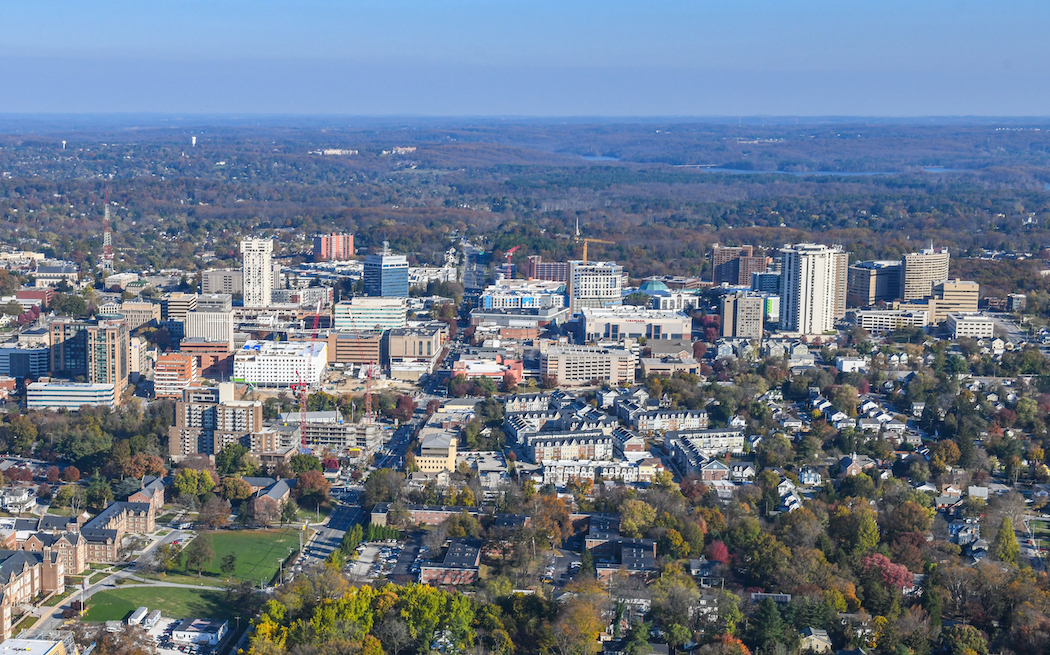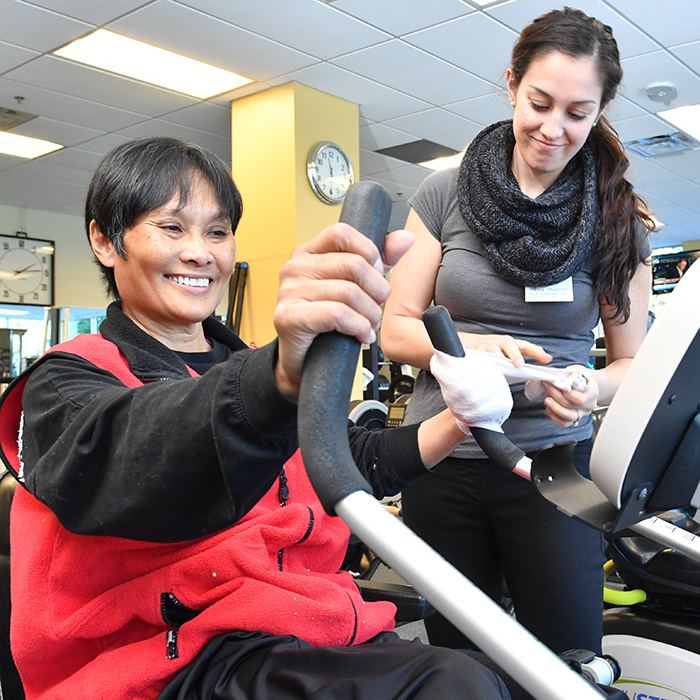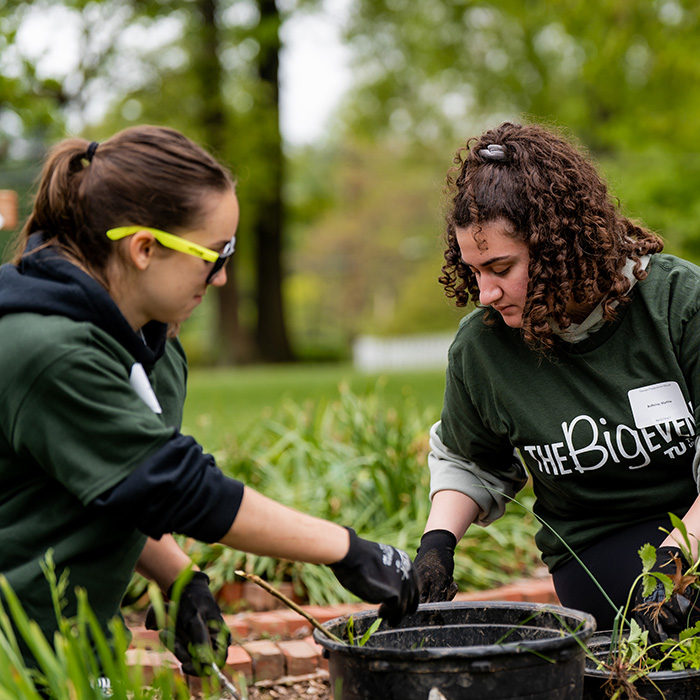Towson University purchases historic armory in downtown Towson
Business engagement center leased by TU since 2019 becomes university property just a year after its official opening.
TU is committed to transforming lives throughout the region for the public good.

As an engaged anchor institution, Towson University recognizes and leverages its economic power and human capital to improve the socioeconomic conditions, the long-term stability and the growth of Greater Baltimore and the state.
We play a central role in Maryland’s growth and stability through:
Our Office of Human Resources identifies and recruits local talent by partnering with community organizations whose mission it is to provide professional, learning and training opportunities for economically disadvantaged Baltimore residents.
Community organizations interested in partnering should contact the Office of Human Resources at hrtu@towson.edu.
TU actively utilizes research, entrepreneurship, human capital, talent development and community stewardship to positively impact the economic prosperity of the region.
We have an estimated annual economic impact of $2.1 billion on Maryland’s economy. As an economic driver, we are committed to equitable and inclusive purchasing and hiring.
Through the Procurement Department, Towson University ensures the opportunity for businesses certified through the Minority Business Enterprise (MBE) Program, Small Business Reserve (SBR) Program, and Veteran Small Business Enterprise (VSBE) Program to participate in all contracts.
Our goal is for at least 29% of the total dollar value be made either directly or indirectly from Maryland-certified MBE's, 20% from SBR's, and 3% from VSBE's.
SBR firms, MBE's, and VSBE's are encouraged to connect with the university liaison at mbe@towson.edu or visit Procurement for more information.
Towson University offers many resources and opportunities for businesses, community members and families to engage with the campus.

At the Institute for Well-Being, we offer innovative health services to the community while providing educational programs for TU students.
Learn More
TU works to create a welcoming environment for its community neighbors while also fostering community relations and openly communicating with the Towson community.
Learn More
From theatre, to music, to dance, to the visual arts, TU is a community destination for student and professional arts and culture performances and installations.
Learn More
The Osher Lifelong Learning Institute at Towson University offers continued learning, programs and activities for adults, age 50 and up, to enhance social and cultural enrichment.
Learn More
A variety of opportunities are available to businesses and organizations as well as individual seeking professional growth and development. Explore the ways that you, your business, or organization can connect with TU and tap into university resources.
Learn MoreSince our founding as the Maryland State Normal School in 1866, TU has had a rich history of community and economic engagement and has been nationally recognized for this work by The Carnegie Classification of Institutions of Higher Education and the Association of Public and Land-Grant Universities. We collaborate with peer institutions locally through BLocal and nationally through the Anchor Learning Network, and our campus serves as the national headquarters for the Coalition of Urban and Metropolitan Universities.
Business engagement center leased by TU since 2019 becomes university property just a year after its official opening.
APLU commission recognizes TU’s impact, innovation and economic engagement.
New location provides more opportunity for programming and research with enhanced accommodations.